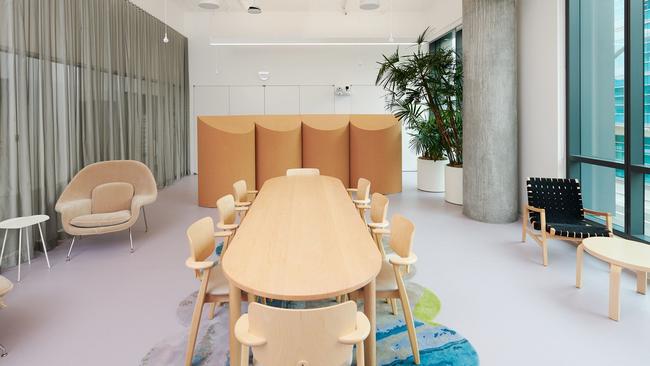Covid-19 won’t kill the CBD but office life needs to change
Knowledge workers will return to city towers, but their jobs will look different.

Our Central Business Districts are suffering during the pandemic. High vacancy rates, low office attendance, fewer major events, everyone is working from home, lack of migration, people avoiding crowded places – you’ve heard the arguments against the CBD in recent months.
Should we just leave the CBD be? Lock the tower doors, have nature take over (think Will Smith’s New York in I am Legend) and happily live and work in suburbia? Maybe let’s think about this in a bit more detail …
Why did our cities feature dominant CBDs in the first place? As our economy transitioned from manufacturing towards knowledge work, office jobs made up an ever-growing share of the workforce.
But why did these jobs cluster in the CBD? Why weren’t they spread out evenly across the city? To some degree zoning practices are responsible but mostly it was the nature of these new office jobs that led to the clustering effect.
A knowledge job benefits from being collocated with other knowledge jobs. While beneficial for employers, this led to a few problems for the workers. Workers commuted to and from the CBD at the same time and house prices near the CBD went up dramatically as workers were willing to pay for the privilege of a shorter commute.
Before the pandemic less than 5 per cent of the workforce worked from home, at the height of the lockdowns half the workforce did so. Many workers don’t want to return to the office at all. So, if workers prefer to be at home and businesses remained profitable, shouldn’t we abandon the CBD offices after all?
The only people disagreeing are the owners of office towers, but you must break some eggs to make an omelette, right?
I disagree with that sentiment. I think the office will simultaneously become more important and be visited less frequently in the future.

The transformation of our workforce towards a knowledge economy continues. We expect over half of all new jobs to require a university level education. We are also seeing technology being even more integrated into every single job.
Algorithms support our decision-making, artificial intelligence speeds up work tasks, robotics improve workflows, software becomes more intuitive, workers become even more productive.
This will not lead to shorter workdays though. Businesses will find ways to keep their staff busy – you can count on that. The individual worker will still be busy, but the nature of their work tasks shifts. A growing share of work tasks will be interpersonal in nature. Communication and creative collaboration are (if at all) the last tasks to be taken over by technology.
A shrinking share of work tasks like writing reports, analysing data, responding to emails, reading, or creating PowerPoint presentations is best done in the quiet of your own home (assuming you have a quiet home). No point in completing such tasks in a noisy open-plan office while wearing noise cancelling headphones. The growing share of work tasks that require you to collaborate with your colleagues to conceptualise a program, to work across various departments of your organisation, to do creative work, to build rapport with new recruits is best done from an office.
How often any given worker will find themselves commuting to the office, shouldn’t depend on some centrally demanded quota (“All staff must be in the office from Monday to Thursday”) but on the individual worker’s tasks during that week. In the final week of a collaborative project all team members are needed in the office while at other times only a few (maybe the ones living in particularly raucous households) have a need to commute to the office.
This changes the nature of the office and by extension of the whole CBD.
The file hosting service Dropbox for example is taking this trend very seriously. They view themselves as a Virtual First company. Working remotely is the default option. They transformed all their offices into studios.
This is part silly rebranding and part revolution. These physical spaces are designed for collaboration and meetings. Big communal spaces feature prominently. Movable wall and furniture elements allow the space to be adjusted to suit the work requirements of the day. Team building activities can be hosted as on-site off-sites.
The most important part is what the Dropbox studio is not. It is not an office that you come into every day. Such a place doesn’t exist at Dropbox anymore.
What does this mean for the future of the Australian CBD? The CBD will continue to be the dominant central work cluster but the nature of work taking place in and around the office towers is changing. Instead of quiet cubicle work, more interactive tasks take place in the CBD.
The CBD is the place for the interpersonal work tasks.
Stepping into any given CBD office, we will see more people sitting and chatting with each other, meeting rooms will be booked, staff will venture to the office kitchen and nearby cafes to meet with colleagues and clients. The office of the future looks less like a quiet library and more like a noisy field trip.
If our employers, their offices, and the CBD in general adjust and cater more to interpersonal work tasks, we will see the return of knowledge workers to the CBD – not for five days per week but for good parts of the week.
As our cities continue to grow, as the workforce continues to grow once borders reopen, the CBD will recover to pre-pandemic levels within a few years. For the owners of the big office towers three years of relatively low occupancy might sound unappealing but it’s a far cry from the doom and gloom narrative that we are exposed to frequently.
Simon Kuestenmacher is the co-founder of The Demographics Group based in Melbourne.






To join the conversation, please log in. Don't have an account? Register
Join the conversation, you are commenting as Logout